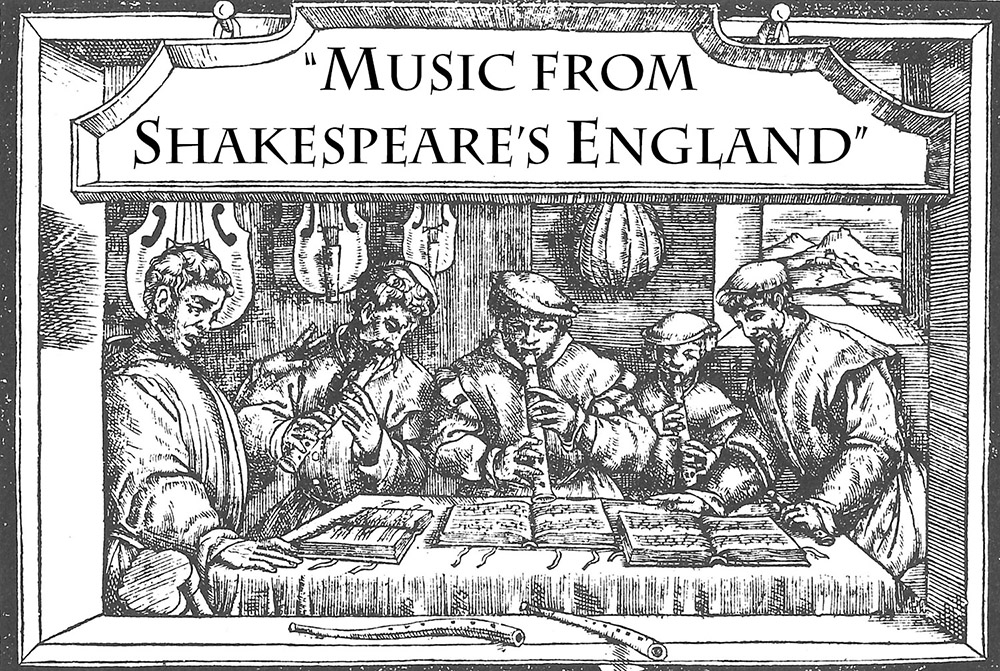The HMC Early Music Ensemble with Guest Singers from the Claremont Concert Choir
The HMC Early Music Ensemble
Kathryn Chan, Celena Chen, Jonathan Hayase, Ke Jin, Erika MacDonald, Kyle Miller, Athena Paraskevas-Nevius, Shruthi Sukir; Bill Alves, director
Singers from the Claremont Concert Choir
Sopranos: Elizabeth Carleton (SCR), Isabel Duan (HMC), Meadow Jones (SCR); Altos: Candice Yuanzhou Chen (HMC), Molly Luce (CMC), Jenny Wathanakulchat (HMC); Tenors: Vale Glasser (HMC), Chris Couto (HMC), Charles W. Kamm (Director of Choirs); Basses: Thomas Fleming (HMC), James Hill (SCR), Matthew LeMay (HMC), Decon Overbey (HMC); conductor: Lily Friedberg (HMC)
Sunday, November 24, 2019, 7 p.m.
Drinkward Recital Hall

Image from the poster. Photo courtesy of the HMC Early Music Ensemble.
PROGRAM
Lachrimae Gementes
The Earl of Essex Galliard
The Earl of Essex Galliard
John Dowland (1563 –1626)
Christmas Suite
Coventry Carol
Remember, O Thou Man
Nowell Syng We
Coventry Carol
Remember, O Thou Man
Nowell Syng We
Anon. (16th cent. or earlier)
Thomas Ravenscroft (c.1588 - 1635)
Anon. (15th cent.)
Thomas Ravenscroft (c.1588 - 1635)
Anon. (15th cent.)
About the May Pole
Thomas Morley
Lasso quand’io credei d’esser felice
Lasso quand’io credei d’esser felice
In una selva tenenebrosa e oscura
Mi ritrovai per me troppo infelice
Chè così piacque a mia stella noiosa.
E meno anco mia vita aspra e penosa,
E quasi ho svelt’il cor da la radice,
E quella a cui serv’io m’è ogn’hor ritrosa,
Nè’l gridar val e favellar non lice.
Lasso quand’io credei d’esser felice
In una selva tenenebrosa e oscura
Mi ritrovai per me troppo infelice
Chè così piacque a mia stella noiosa.
E meno anco mia vita aspra e penosa,
E quasi ho svelt’il cor da la radice,
E quella a cui serv’io m’è ogn’hor ritrosa,
Nè’l gridar val e favellar non lice.
Vittoria Aleotti (c. 1570-after 1620)
Alas, when I believed I was happy
In a wood, dark and shadowy,
I found myself so much so unhappy,
For so it pleased my burdensome star.
And I still lead my painful and harsh life,
My heart is nearly torn from its roots,
And she whom I serve is always against me;
And crying out is useless,
and speech forbidden.
Alas, when I believed I was happy
In a wood, dark and shadowy,
I found myself so much so unhappy,
For so it pleased my burdensome star.
And I still lead my painful and harsh life,
My heart is nearly torn from its roots,
And she whom I serve is always against me;
And crying out is useless,
and speech forbidden.
—Anonymous 16th century Italian poet, translation by Charles W. Kamm and Marino Forlino, Asst. Professor of Italian
Rest, Sweet Nymphs
Rest, sweet nymphs, let golden sleep
Charm your star brighter eyes
While my lute the watch doth keep
With pleasing sympathies.
Lulla lullaby
Sleep sweetly, let nothing affright ye;
In calm contentment lie.
Rest, sweet nymphs, let golden sleep
Charm your star brighter eyes
While my lute the watch doth keep
With pleasing sympathies.
Lulla lullaby
Sleep sweetly, let nothing affright ye;
In calm contentment lie.
Francis Pilkington (1563-1638)
—Anonymous 16th-century English poet
Suite from As You Like It
Blow, Thou Winter Wind (version 1)
Blow, Thou Winter Wind (version 2)
It was a Lover and His Lass
Under the Greenwood Tree
What Shall He Have That Killed the Deer?
Blow, Thou Winter Wind (version 1)
Blow, Thou Winter Wind (version 2)
It was a Lover and His Lass
Under the Greenwood Tree
What Shall He Have That Killed the Deer?
Anon. (16th cent.)
Anon. (16th cent.)
Thomas Morley (c. 1557-1602)
Anon. (late 16th cent.)
Anon. (late 16th cent.)
Anon. (16th cent.)
Thomas Morley (c. 1557-1602)
Anon. (late 16th cent.)
Anon. (late 16th cent.)
John Dowland studied at Oxford and for much of his career was court composer for the King of Denmark. In 1612 he secured a post in James’ court in England. He was famous as a lutenist and a composer of songs, many of which are still well known, but he also composed and published popular instrumental music, such as these works.
Thomas Morley was for many years the organist at St. Paul’s Cathedral in London and one of the most prominent English composers of the period. Elizabeth’s court granted him a publishing concession that led to the introduction of Italian madrigals to England. Morley was at the forefront of adapting this Italian model to English tastes, and his madrigals are still among the most popular music of the period. He also composed distinctive instrumental music, and his book A Plaine and Easie Introduction to Practicall Musicke was widely influential.
Thomas Ravenscroft attended Cambridge University and wrote treatises on music theory. Nevertheless, he is known for his collections of folk music, and many of his secular compositions show this influence in their simplicity, directness, and danceability.
Vittoria Aleotti was one of five daughters of Giovanni Battista Aleotti, architect to Alfonso II d’Este, Duke of Ferrara. In a dedication to her printed book of madrigals (1593), her father described the discovery of Vittoria’s musical genius at the keyboard at age five. At age 14 she took holy orders as a nun at the convent of San Vito, which was renowned for excellence in musical training. Vittoria also published a book of motets under the name Rafaella Aleotti in the same year 1593.
Francis Pilkington took the Bachelor of Music degree at Lincoln College, Oxford, in 1595. His life was centered around rural Chester rather than the more cosmopolitan London. The charming little madrigal “Rest, Sweet Nymphs” was first published in 1605.
HMC is deeply grateful for the generous support that created The Ken Stevens ’61 Founding Class Concert Series.